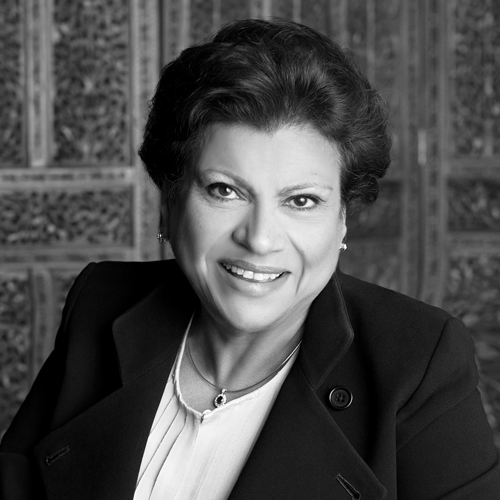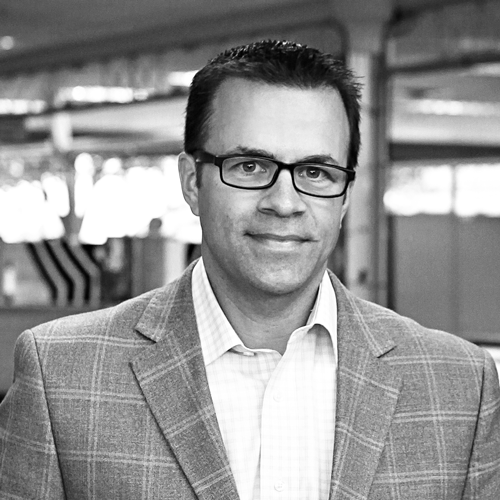When Scottsdale Healthcare and Lincoln Health Network merged in the fall of 2013, they did more than create a system with more than 10,000 healthcare professionals serving the metropolitan Phoenix area. HonorHealth—the name of this new organization—also created the unique but essential position of chief financial and strategy officer (CFSO).
“The CFSO title is an acknowledgment of the evolving healthcare environment and how new priorities are required to thrive within it,” says Todd LaPorte, who today inhabits the crucial role. “As HonorHealth moves to a population management approach, it is also emblematic of the significant financial planning that’s essential to make our new strategic direction successful.”
This new approach (also known as risk-based contracting) requires HonorHealth to manage and coordinate a much broader range of care than ever before. Rather than focusing only on acute hospital treatment, care now encompasses pre- and post-acute services, as well as follow-up across the full continuum of care.
“Risk-based management means we have to open our eyes to what goes on outside the walls of our hospitals,” LaPorte says. “That includes forging new relationships and coordinating the financial investments and business planning that accompany those new strategies. You can’t get too far ahead of your capabilities. That means we have to ensure that financial contracting functions are also in sync with the development of new capacities and resources.”
Although CFOs have long been involved in strategy, the CFSO designation has created a new environment in which strategic ideas are discussed more stringently in relation to business plans and financial analytics. Furthermore, by having finance and strategy combined under one umbrella, HonorHealth has ensured the coordination of the two as well as the streamlined development of processes needed to support the transition to a population-management scenario.
The continuum of care implicit in a value-based model has put new requirements on HonorHealth’s IT infrastructure. It must now facilitate communication between acute-care facilities and nursing homes, long-term care, home-health care, and others.
“It’s an entirely new level of information management and exchange that goes beyond medical details to how we receive global payments and how they are disbursed to various entities throughout our system,” LaPorte explains. “Those responsibilities used to be the insurance companies’, but now we have to own them.”
HonorHealth is on track to integrate all offices and systems within the organization to a uniform technology platform by the end of 2016. It has already combined 225 employed physicians into a single system, but it must still integrate all five of its hospitals onto one platform from the two-system network that currently exists.
Two years into transitioning to risk-based management, HonorHealth has already posted significant savings and care improvements: pilot programs with Accountable Care Organizations within its own employee health plan have reduced costs by 10 percent; service to Medicare Advantage Plans has produced a savings of 6 percent; its Medicare Shared Savings program, which serves 14,000 Medicare beneficiaries, saved the Centers for Medicare and Medicaid Services $3.6 million; and, in one instance, savings of $65,000 were realized for a single patient, compared to the previous year’s costs for multiple acute-care emergency treatments.
This last element is indicative of the new approach helping to identify high-risk patients in order to provide innovative solutions, such as improving home conditions or social support rather than focusing exclusively on direct medical care.
“Our vision has expanded to include overall health and wellness, as well as follow-up care,” LaPorte says. “In those situations, replacing or updating an inadequate air-conditioning system, for example, can be just as important as medical intervention. It can prevent a patient’s condition from worsening and eliminate the need for emergency care later.”
CFOs are accustomed to making decisions based on facts, historical outcomes, and other types of hard evidence. But the new healthcare environment often requires decisions to be made when there is simply no history to draw from.
“The challenge is how to make the best judgments without perfect information,” LaPorte says. “How do we manage risks that were never our responsibilities before? We’re still learning techniques to bridge gaps in the resources available to us.”
As CFSO, he predicts that in five years, HonorHealth will grow significantly in its numbers of locations, services, and lives under risk-based contracts.
“Our model for achieving those goals may not be the most common, but I’m positive that the transparency and structured discipline it provides will help us get there faster than any other traditional approach,” he says.


